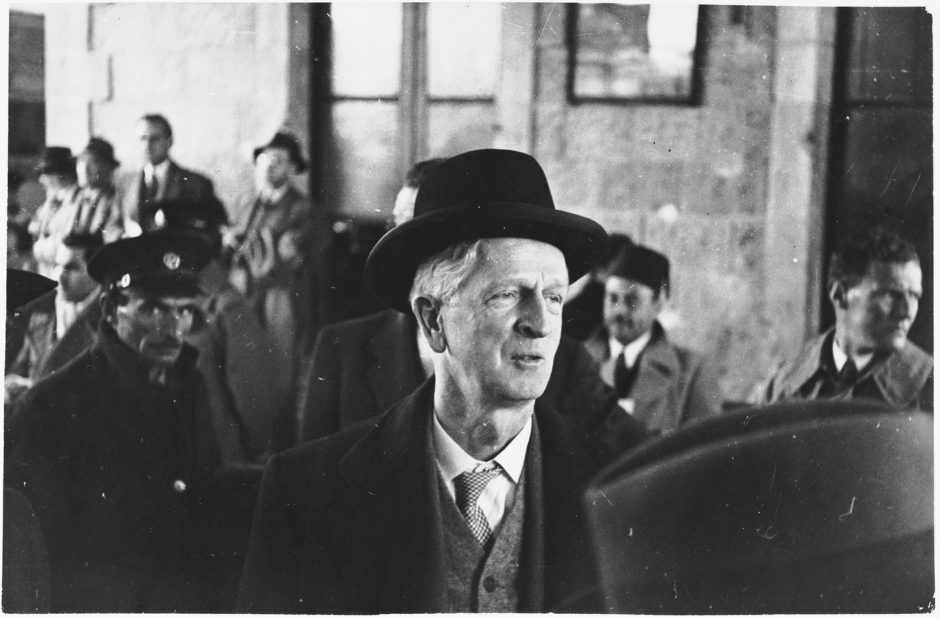James Grover McDonald, the first U.S. ambassador to Israel, kept a diary from the moment he arrived in the Jewish state in 1948 until the day he finished his duties in 1951. An academic and a journalist, he was personally chosen for the post by President Harry Truman after Washington’s recognition of Israel. At first, he served as “special representative,” but about a year later, he was officially appointed ambassador, a role he fulfilled with passion and intelligence.
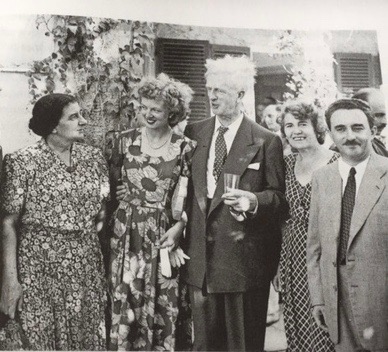
McDonald, who had been an Indiana University history professor, a member of The New York Times‘ editorial board and the League of Nations’ High Commissioner for Refugees, was a Zionist. Having witnessed the persecution of Jews in Germany and having watched European antisemitism degenerate into the Holocaust, he staunchly endorsed the idea of Jewish statehood.
The pro-Arab U.S. State Department, however, took issue with Truman’s pro-Zionist policy, with Secretary of State George Marshall warning him that the United States could ill afford to alienate the Arab world by recognizing Israel.
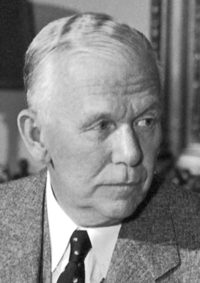
It was against this backdrop that McDonald, accompanied by his daughter Barbara Ann, set off to Israel by ship. They reached Israel in August at a critical point. The first Arab-Israeli war was still flaring. Accommodations in Tel Aviv were scarce. Food shortages were common. It took more than a month before a satisfactory American residence could be found.
McDonald was utterly dedicated to his job. He conversed with Israeli leaders. He travelled around the country. He met a steady stream of visitors ranging from the author Arthur Koestler to the Hollywood actor Edward G. Robinson. He conveyed his impressions of Israel in diplomatic cables.
McDonald’s real-time recollections are contained in an intriguing book, Envoy to the Promised Land: The Diaries and Papers of James G. McDonald, 1948-1951 (Indiana University Press), a hefty 1,048-page volume edited by scholars Norman J.W. Goda, Richard Breitman and Severin Hochberg in conjunction with McDonald’s daughter, Barbara McDonald Stewart. McDonald is not a master stylist, but his entries tend to be interesting and to the point.
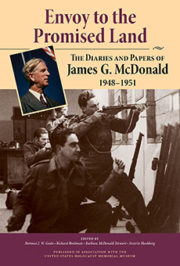
On September 13, 1948, just four months after Prime Minister David Ben-Gurion proclaimed statehood, McDonald sent a top-secret cable to Truman and Marshall arguing there could be no “fruitful peace negotiations” between Israel and the Arab states until “Israel is definitely established.” In his response, Marshall wrote that American de jure recognition of Israel would “inflame” the Arab world. About a month later, following Israel’s first general election, the United States granted Israel this recognition.
Later that month, Israeli diplomat Abba Eban expressed “astonishment” that the United States supported the Bernadotte plan under which Israel would be required to cede the Negev to the Arabs. He added, “Haifa, with its port and oil refineries, is and must remain part of Israel.” So must Jerusalem, he said.
On September 29, the Soviet minister in Israel, Pavel Ershov, told the Associated Press that Israel’s relinquishment of the Negev would, as McDonald observed, “make way for the development … of British bases to be used against Russia.” Ershov warned Israel that Moscow’s “friendly attitude” would vanish if the Israeli government gave up the Negev.
In November, the State Department sent a seasoned diplomat to Tel Aviv to assess the strength of Communist penetration in Israel. McDonald had already voiced concern about the left-wing Mapam Party’s naivety toward the Soviet Union.
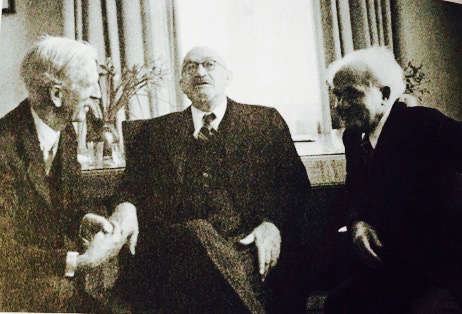
Ben-Gurion invited McDonald to lunch. “We lunched alone at what was the most complete meal I have had outside of one or two private homes in Israel. Gefilte fish, chicken livers on toast, delicious soup, mixed grill … lettuce salad, stewed fruit and finally, fresh fruit and coffee.”
McDonald’s impression of opposition leader Menachem Begin was blunt: “Begin seemed genuinely interested but not very well informed on American politics.”
Chaim Weizmann, Israel’s first president, told McDonald that Israel would never surrender the Negev. If the United States reacted by imposing sanctions, he said, Israel would “of necessity and with deep regret turn to Russia for aid.” McDonald wrote that Weizmann was “so contemptuous of Arab weakness that he said the Israeli forces could take Damascus in one hour if they chose…”
McDonald, in a cable to Marshall on November 19, sketched his vision of Israel in the next decade. “A country much larger in population than at present, educated and highly trained and willing to be a bulwark not of the West against the East, but of its own freedom …”
Truman, in a letter to McDonald on November 29, said he fully agreed with “your estimate of the importance of (the Negev) to Israel, and I deplore any attempt to take it away from Israel.”
On January 23, 1949, McDonald met The New York Times‘ foreign affairs columnist Anne O’Hare McCormick. She reported that Transjordan had no intention of resuming the war and coveted the Gaza Strip.
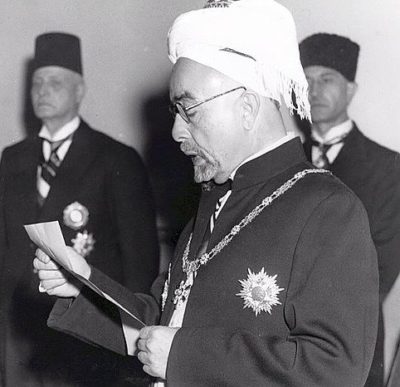
In February, the Israeli government’s chief Arab negotiator, Eliahu Sasson, told McDonald that King Abdullah of Transjordan was “anxious for speedy peace negotiations” with Israel and had duly informed all Arab governments of his plan. Transjordan, the monarch said, was not interested in acquiring the Negev and believed that Israel should govern western Jerusalem.
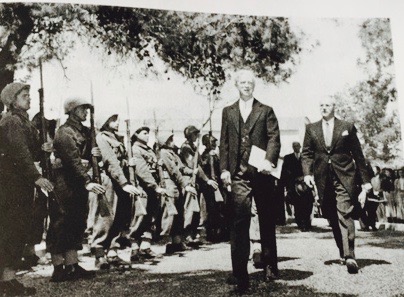
On March 18, 1949, McDonald was officially granted the title of ambassador. McDonald, in a letter to a friend, wrote, “The president’s evidence of confidence in me … makes me feel that my labors … have not been wasted … it enables me to carry on in what is the most absorbing task of my life …. I shall be given the opportunity to carry on … until real peace has been established with Israel’s neighbors.”
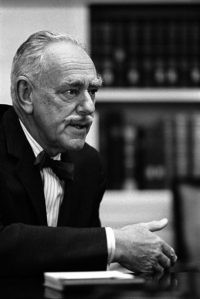
Shortly before his appointment, McDonald told the new secretary of state, Dean Acheson, that Arab states bore responsibility for resolving the Palestinian refugee problem. As he put it, “Had there been no Arab attack on Israel, there would have been no Arab refugees.” Israel could provide technical assistance to the refugees, he noted. Washington was concerned that the refugee issue would harden Arab attitudes and make Arabs more open to Soviet influence.
As several Arab states signed armistice agreements with Israel, Acheson reiterated his belief that if Israel held on to territories that had been allotted to a Palestinian Arab state under the 1947 partition proposal, it would have to make territorial concessions elsewhere. He also said that failure to resolve the refugee question would wreck the chances of a final peace settlement.
Moshe Sharett, Israel’s foreign minister, recommended to the Israeli cabinet on July 5 that Israel accept 100,000 Palestinian refugees. The Arabs rejected the overture.
On July 11, McDonald predicted that Egypt, of all the Arab states, “is the least likely to make real peace with Israel and the most apt to launch a renewal of war.” Some months later, Yigael Yadin, the 32-year-old chief of staff of the Israeli armed forces, told McDonald that rapid Arab rearmament could trigger another war. “If the war broke out again, it would be the aim of Israeli forces to drive deep into enemy territory,” said Yadin.
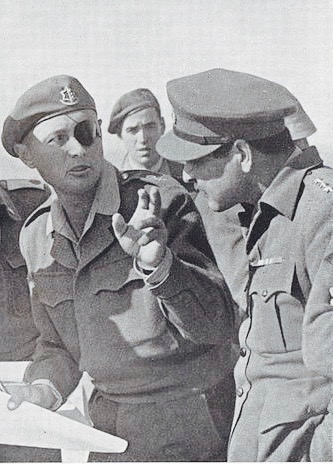
McDonald was impressed by Yadin’s colleague, Colonel Moshe Dayan: “Certainly he is a most charming and intelligent individual.”
Five days after Australia sponsored a United Nations resolution in December calling for Jerusalem to be placed under international control, Israel transferred its government offices and the Knesset to its capital. The UN Trusteeship Council voted to censure Israel. The United States abstained, but ordered all U.S. embassy officials not to attend Israeli government functions in Jerusalem. Flouting this edict, McDonald attended the Hebrew University’s 25th anniversary ceremony in Jerusalem in 1950.
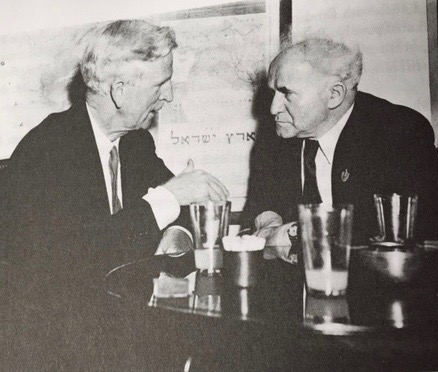
Toward the close of December, McDonald informed friends he intended to quit sooner than he had anticipated, citing fatigue and family and financial reasons. His successor, Monnett Bain Davis, the former ambassador to Panama, would die in his sleep in 1953.
Meanwhile, Israel signed its first bilateral accord with the United States, an air agreement granting El Al and TWA equal rights. Washington, though, still refused to sell military equipment to Israel on the grounds that it was militarily strong.
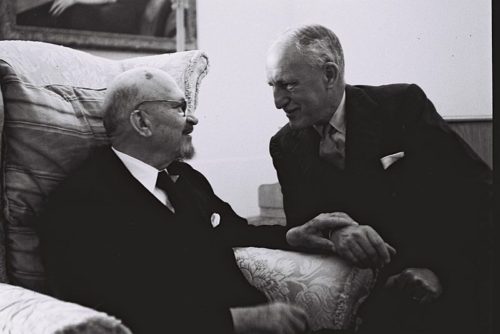
In June, McDonald paid Weizmann a visit and was shocked by his decrepit appearance. “I got the impression that he is indeed living on borrowed time,” he wrote.
After the Korean War broke out, Israel remained silent, much to the disappointment of the United States. Sharett drafted a statement aimed at preserving Israel’s non-aligned status while supporting the United States. McDonald explained to his superiors that Israel’s position, forged in the interest of protecting Soviet Jews, really spelled finis to its policy of neutrality and had pushed it into the Western camp.
With his term of office ending, McDonald contacted Truman: “My experience here has been very rewarding. It has enabled me to watch closely the emergence of democratic Israel from a provisional regime … into a modern progressive state.”
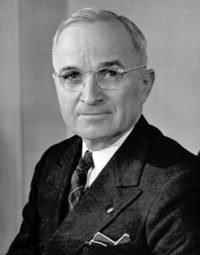
A day before McDonald departed, Sharett praised him for having helped lay the foundations of Israel’s friendship with the United States. “He succeeded in conveying and interpreting to Washington with sympathy and understanding the spirit and problems of Israel,” Sharett said.
Back in the United States, McDonald joined the board of the non-profit American Financial and Development Corporation for Israel, which sold and underwrote Israeli bonds. He delivered speeches on behalf of Israel and wrote his memoirs. And he criticized U.S. policy toward Israel, which took a disturbing turn during the Cold War under the Eisenhower administration. Hoping to create a bloc of Arab countries partial to the United States, Washington adopted a policy of “friendly impartiality.”
As a result, the United States pressed Israel to make territorial concessions in the Negev so as to allow contiguity between the Arab states. Washington also pressured Israel to stop diverting the waters of the Jordan River to irrigate the Negev. And in another sop to the Arabs, the U.S. urged Israel to slow Jewish immigration.
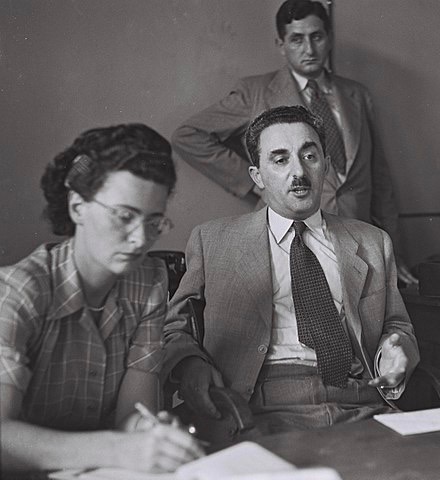
McDonald retired in 1961 and spent his remaining years in Bronxville, New York. He died in 1964 after a long illness.
In closing, the editors write, “James McDonald was one of Israel’s first true friends and one of the most steadfast. His friendship was born of the hard-learned belief that persecuted Jews needed a place of their own and that with time that place would, despite its growing pains, become a beacon.”
